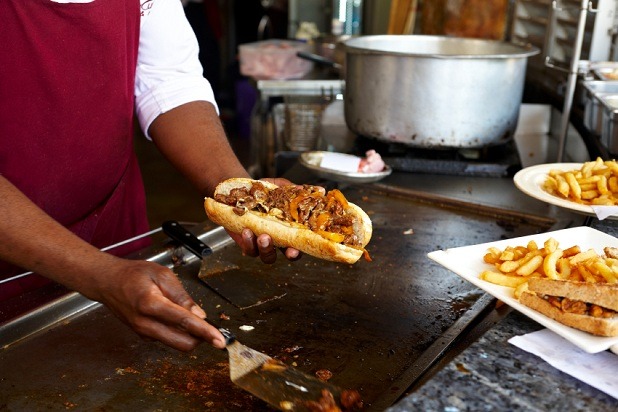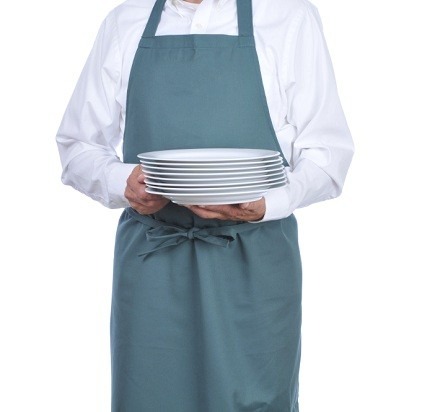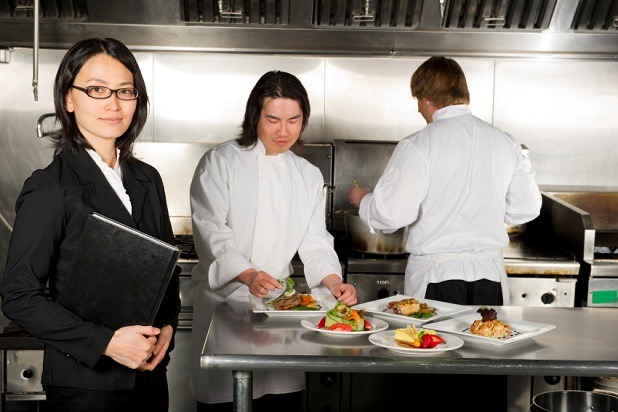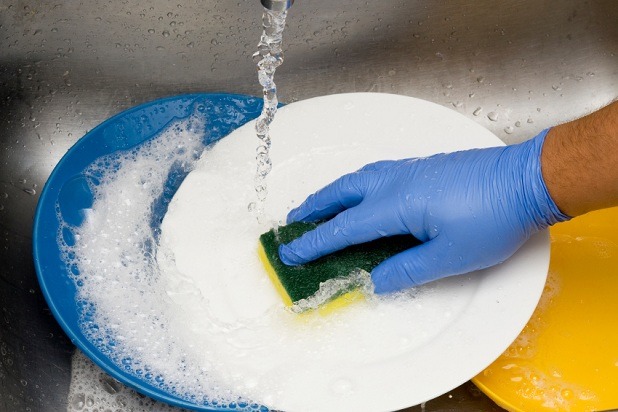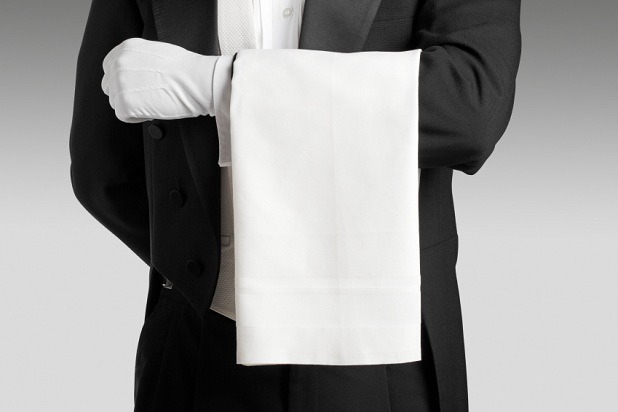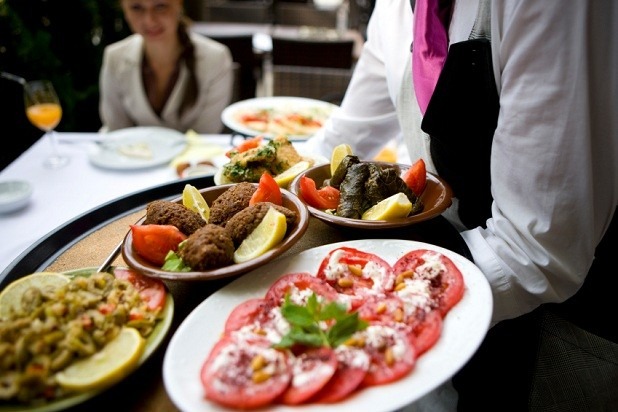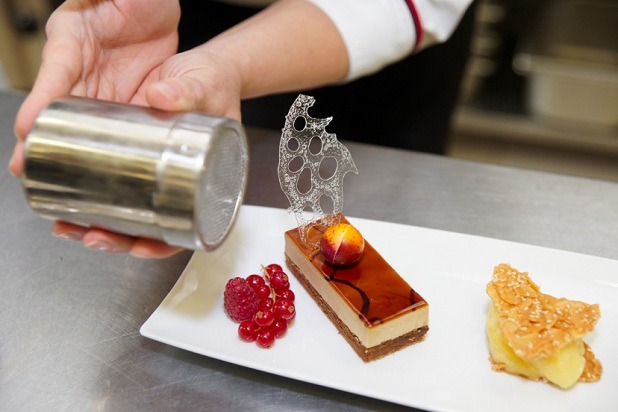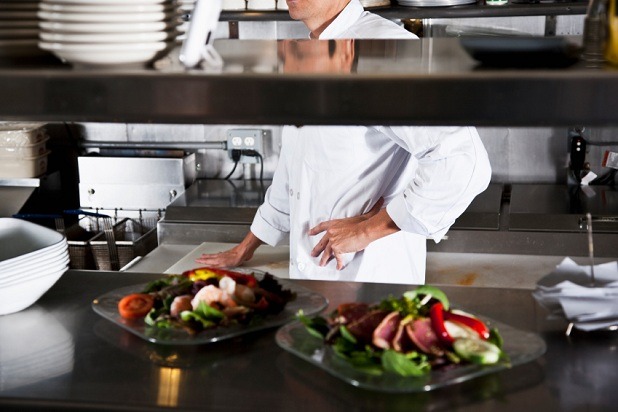Highest Paying Restaurant Jobs Slideshow
A good deal of what a deli clerk does is calculation: portioning and packaging salads, pricing meats per pound. In figuring a clerk's worth, too, there's a lot to weigh, including the shop's location, the quality of its products, and how much hands-on food prep is required of the clerk.
At a major chain, a deli clerk might start out making slightly more than minimum wage. A position at a gourmet grocery, on the other hand, can bring closer to $20 per hour. But the nicer the shop, the more divided the behind-the-counter jobs become, spawning specialized titles like cheese monger or butcher, which can vie for larger slices of profits.
Fast Food Cook: $7.57 — $10.98
For fry cooks, it's all about speed and stamina. In an industry that serves one in four Americans daily, fast food cooks flip, fry, and assemble meals at dizzying rates and volumes. To make this process possible, and to create dishes that are uniform in taste from store to store and state to state, most foods are prepped elsewhere in large factories so they can be made at local shops with the push of a button.
Training is minimal. So is pay. The mean hourly wage for a fast food cook in America is reported as $8.91 an hour. To supersize that, head to Massachusetts, which the U.S. Bureau of Labor Statistics lists as one of the top-paying states for fry cooks.
Busboy: $7.25 — $11 An Hour (Plus Tips)
Restaurant Manager: $30,480 — $80,410
Dishwasher: $7.56 — $11.14 an Hour
Dishes aren't the stuff of dreams, but they'll often get you there. Many a fine chef — April Bloomfield of New York's The Breslin, The Spotted Pig, and John Dory, for one — has gotten a start in a kitchen wrangling sheet pans and dish racks.
Of course, moving beyond the sink isn't guaranteed. And the job — one of a high-functioning kitchen's most important — is often a thankless, dirty thing with little payoff, particularly when it comes to wages. The Bureau of Labor Statistics cites the mean hourly rate for a dishwasher as $8.98.
Bartender: $7.60 — $15.14 Plus Tips
When it comes to a bartender's earnings, there's a lot of variation at play: a bartender's personality can make a difference, but also how many drinks are doled, what kind, and where the drink goes down. A job at the bar in large city may bring in much more than a post at rural one (though that's not necessarily the case), and a spot at a hotel's well differs greatly from the same place at a club.
Cuteness factor — male or female — also helps. In New York City, most hotel bartenders belong to unions, meaning respectable — even impressive — wages, benefits, and tips. And so, though the Bureau of Labor Statistics claims that annual earnings for a bartender top out around $31,000, New York reports that a place at The Plaza's Oak Bar draws something more along the lines of $70,000.
Sommelier: $30,000 — $160,000 Plus Tips
Mostly seen in high-end restaurants and hotel dining rooms, sommeliers are ensured from the get-go a certain degree of prestige and pay. But specific qualifications, particularly the esteemed Master Sommelier certificate, up the ante in big ways.
While an inexperienced sommelier draws around $30,000, a Master Sommelier (of which there are only 112 in North America), earns more like $80,000 — even double that amount in some cases — for his or her ability to distinguish the many nuances of various wines and offer pairings. But there's a lot to pay in for that title before it will pay out. Master Sommelier courses and tests, for which there's only a 10-percent passing rate, cost hundreds of dollars a pop. Tasting all that wine doesn't come cheap either.
Sommelier: $30,000 — $160,000 Plus Tips
Mostly seen in high-end restaurants and hotel dining rooms, sommeliers are ensured from the get-go a certain degree of prestige and pay. But specific qualifications, particularly the esteemed Master Sommelier certificate, up the ante in big ways.
While an inexperienced sommelier draws around $30,000, a Master Sommelier (of which there are only 112 in North America), earns more like $80,000 — even double that amount in some cases — for his or her ability to distinguish the many nuances of various wines and offer pairings. But there's a lot to pay in for that title before it will pay out. Master Sommelier courses and tests, for which there's only a 10-percent passing rate, cost hundreds of dollars a pop. Tasting all that wine doesn't come cheap either.
Maître d’Hôtel: $28,000 — $45,000 Plus Tips
CareerBuilder reports the annual salary range of a maître d'hôtel, or maître d', as $28,000 to $45,000 annually. It can be assumed, however, that the rate is actually much higher. Time reports that about a century ago, the Waldorf-Astoria's famed Oscar Tschirky, or Oscar of the Waldorf, brought in $30,000 annually; that's $600,000 or more in today's dollars.
The job, which is often offset at small, affordable venues by headwaiters and hosts, involves overseeing wait-staff, reservations, and seating — and a good maître d' is in effect the public face of a restaurant.
Server: $7.54 — $14.41 Plus Tips
Sous-Chef: $33,088 — $111,020
Pastry Chef: $33,000 — $70,000
Executive Chef: $23,260 — ?
A kitchen's highest in command is also its highest paid. Based on a 2009 salary survey, StarChefs.com lists an executive chef's annual income as $79,402. That number rises to $85,685 for executive chefs who are also restaurant owners, and even higher for executive chefs working at a private facility. The latter make a reported $91,860 on average.
But as StarChefs.com also details, an executive chef's work runs long — on average 11 hours daily. The nature of that work changes from kitchen to kitchen. In a smaller restaurant, an executive chef's role is probably more hands-on than in a larger place with more staff. And as a recent article in The Daily Meal also makes clear, many executive chefs spend little time at a stove at all, working instead to build empires beyond a one-off restaurant. For those folks, including Wolfgang Puck and Jamie Oliver at the top, the pay is in the multi-millions.

